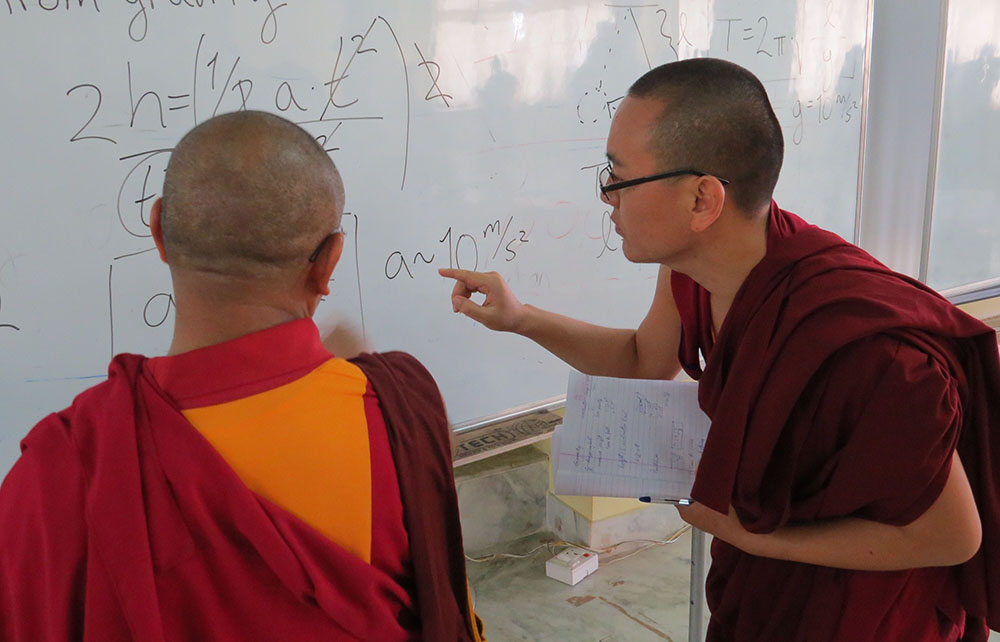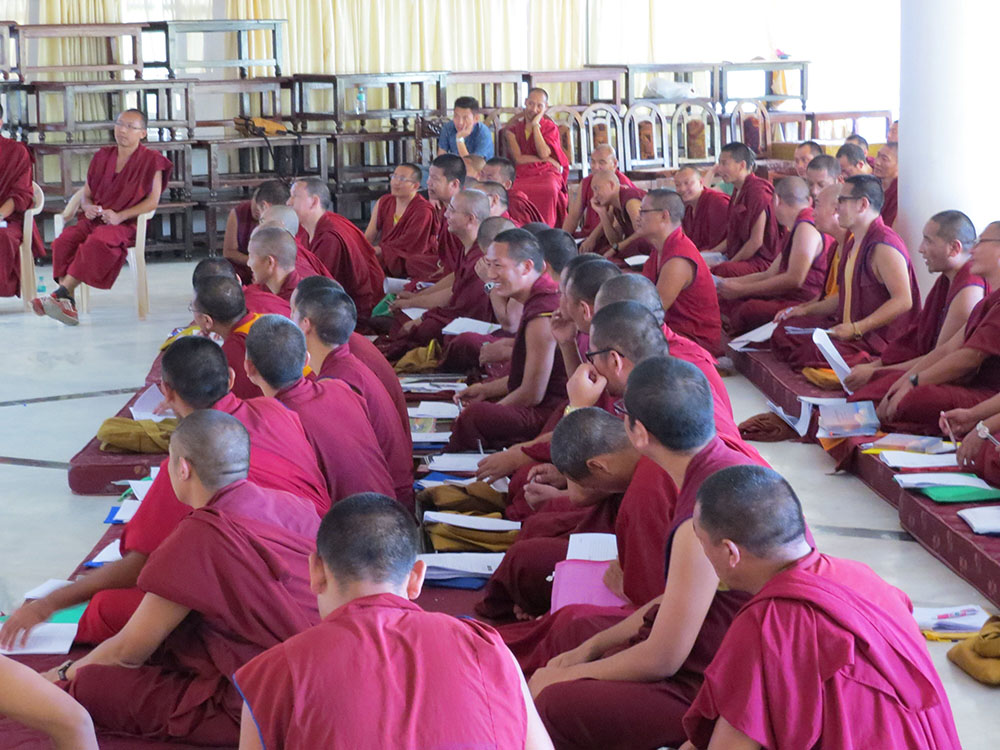
Winter Research Program & Translation Workshop
Winter Research Methodology Workshop
In the Research Methodology Workshop, the same group of sixty monastic students who receive additional pedagogy training in summer sessions will also engage in novel research projects developed during the winter workshops. A team of six faculty, with engagement of lay Tibetan scientists living and working at the monasteries, will engage with monastics during the research methodology sessions to design and implement interdisciplinary science projects. The topics for these projects are selected by and particularly germane to monastics—for example, improved access to water and other local ecological issues—and some have already been piloted (such as a study examining depression among the monks). Students will address a shared research question in Year 1 (2020) in order to focus on learning research methods and data analysis. In Year 2 and Year 3 (2021-2022), the students will progress towards generation of their own research questions. To complement this research training at the monasteries, ETSI will arrange merit-based internship opportunities for selected participants at university research labs.
Winter Translation Workshop
Extending the International Conferences on Science Translation held at Emory, annual translation workshops will be held in south India at the Drepung Loseling Meditation and Science Center. In this way, a greater number of well-qualified bilingual scientists, scholars, and translators can more easily participate, allowing for more extensive participation from the staffs of the Library of Tibetan Works and Archives and the Department of Education at the Central Tibetan Authority, as well as from the participating monasteries and nunneries, and the Tenzin Gyatso Science Scholars. The conference will be organized by Emory University and will continue the work of standardizing the creation of a comprehensive scientific lexicon in the Tibetan language. Each year, roughly 500 new science terms each year are added to the already-rich Tibetan language, which has millions of speakers throughout the Himalayas and Mongolia.
By creating scientific terms in Tibetan, ETSI provides these populations with a means to discuss scientific research and theories in their own language, and helps to preserve Tibetan language and culture, and its centuries-old tradition of translation, by connecting it with 21st century knowledge.



 ETSI
ETSI